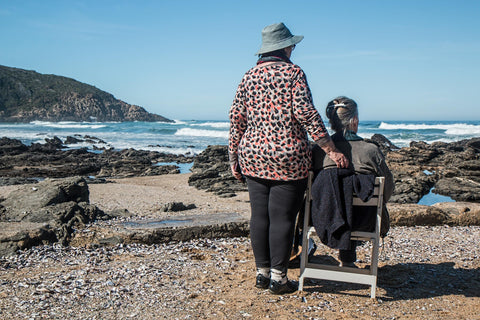
Arthritis is painful the way it is. Being overweight can worsen symptoms, make medications less effective, and can contribute to the offset of other health problems. Obesity is also a risk factor for developing osteoarthritis, the most common joint disorder affecting knees, hips, the back, and the neck. But how can fat have an impact on arthritis? And what can we do to overcome most of the issues? We condensed for you all you need to know about obesity and arthritis in this article.
Obesity is a Risk Factor For Arthritis

The rate of arthritis among individuals is rising at the same pace as obesity. The correlation between arthritis and obesity is obvious. If you think about it, it makes sense that extra pounds are hard on joints. Following that logic, the more you weigh, the more stress you'll put to your knees. The extra pressure only your joints make arthritis worse if you already suffer from the disease and might also cause its onset in the first place.
According to recent research, obese women and men are respectively 4 and 5 times more likely to suffer from arthritis than healthy-weight individuals.
Fat and Arthritis

The contribution of fat to the spread of arthritis is not limited to some "extra pressure" on joints. Excess fat can also speed the destruction of cartilage and misalign your joints, which will further stress your knees.
Fat cells seem to produce and release proteins into your body that cause inflammation, which contributes to arthritis. Constant inflammation around joints is a risk factor for the development of osteoarthritis.
Disease Progression
Arthritis spreads more quickly and gets severe faster in obese people than in healthy ones. Not surprisingly, overweight patients are more likely to need hip or knee replacements and usually have more complications from osteoarthritis.
Obese people suffer more pain, not only due to the greater pressure on joints but also because of the reduced effectiveness of treatment.
Unfortunately, antirheumatic drugs often used to treat arthritis are found to be less effective in obese people. According to doctors, fat cells may render such medicines non-functional.
The Benefits of Weight Loss

Losing even small amounts of fat reduces the risk of developing arthritis and can also help in relieving the pain if you already suffer from it.
The bad news is that no diet will magically reduce pain or slow arthritis. No special food will make you lose enough weight to be healthy. Instead, the key is to develop a habit that will make you eat healthily consistently.
The good news is that, as previously mentioned, you don't have to lose a lot of weight to notice some improvement in your arthritis. If your goal is to reduce pain, even the smallest weight loss will count. If you are trying to lose weight, try following these winning strategies:
- Set Realistic Goals - one of the most popular causes of failing in dieting is because people set unrealistic goals. You must avoid being too harsh on yourself because that will lead to no result. You cannot expect to change your eating habits drastically. For instance, cutting all carbs all at once will do you no good. As soon as you'll see some bread and eat a little, you'll want to eat the whole loaf! Remember, balance is the key!
- Find your Strategy - not all diets work the same for everyone. You need to find the approach the works best for you (and stick to it). Whether counting calories or gradually eliminating sugars, the method you choose should be one you are likely to follow consistently over the long term.
- Reduce Calories - one trick to eat healthily is to cook the food yourself. It not only allows you to control what and how much you eat, but it will also contribute to developing a better relationship with food.
- Exercise regularly - diet must go hand in hand with daily exercise. Even people with osteoarthritis should do some activity to improve mobility and reduce pain. Swimming, walking, aerobics, and light resistance exercise are all great options
- Partner with a Buddy - having someone to share your weight loss journey with can be highly motivational. Also, it will be an additional challenge for you. Select among your friends or colleagues someone to join you. Set your goals together and encourage each other: you got this!
- Keep motivation high - while having a buddy can help, rewarding yourself along the way is also important. Treat yourself when you reach your goals and monitor the changes you notice in your body. If you suffer from osteoarthritis, you'll realize the pain will eventually reduce over time. That itself can be seen as a reward and a motivation to keep going in that direction.
Conclusion
Obesity does no good to arthritis. On the other hand, losing some weight can help you overcome pain and reduce the risk of developing the condition. Follow the advice in this article, and you'll likely feel better!

1 comment
Am try to work on my sugar intake and a little more exercise for the winter . Information was very helpful
Leave a comment